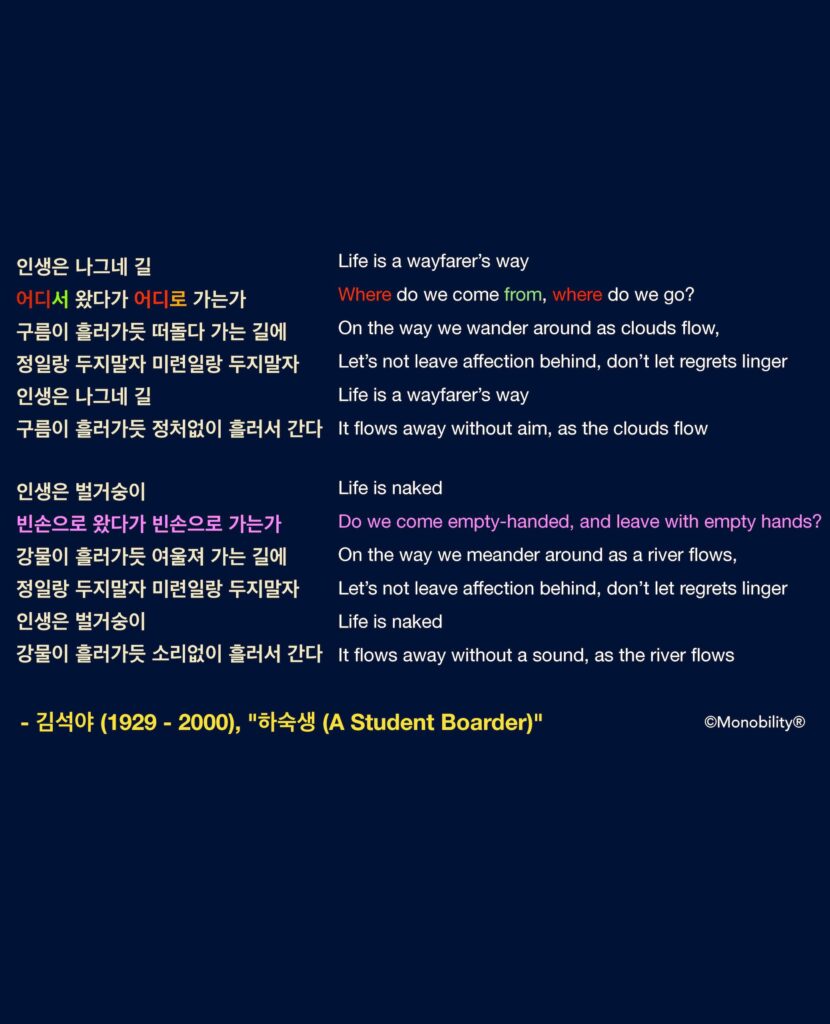Somewhere in your long life, you may have to fly to a foreign country, far away from your home, even if you don’t speak one word of the language. If there are two simple questions that you must still comprehend to just survive there even in an emergency, what would they be? They are basically taxi driver questions, no matter which country you fly to:
1) Where are you going? = 어디 (어디로) 가세요?
2) Where are you from? = 어디서 왔어요 (오셨어요)?
- 어디로 = To where [Destination]
- 어디에서 / 어디서 = From where [Origin]
- 어디 / 어디에 = Where [staying, no movement]; or To where [Destination – colloquial]
So, how do you answer the questions in Korean?
1) To answer “어디 (어디로) 가세요?”:
[Destination]에 갑니다. = I am going to [Destination].
or [Destination]으로 가 주세요. = Please take me to [Destination] (to your taxi driver)
- 인천공항에 갑니다. = I’m going to Incheon Airport.
- 스페인 대사관으로 가 주세요. = Please take me to the Embassy of Spain.
2) To answer “어디서 왔어요 (오셨어요)?”:
[Your Country]에서 왔어요. = I am from [Country].
- 필리핀에서 왔어요 = I am from the Philippines.
- 미국에서 왔어요 = I am from the United States.
왔어요 is pronounced as “와써요.” But 갑니다 is pronounced as “감니다,” due to phonetic phenomena called Consonant Assimilation. Voilà, now you can survive in Korea, even in an emergency situation, e.g., your taxi driver doesn’t understand English. But those cases would be rare, especially from international airports.
Enjoy Spanish Millennium Choir’s amazing performance of “하숙생,” a famous old song that every Korean knows:

빈손으로 왔다가 빈손으로 간다 ( 空手來空手去)
https://www.chosun.com/economy/industry-company/2020/10/26/TTPM44X2VFF5LAKN73II5X5KE4/
Check out our Facebook for much more:



